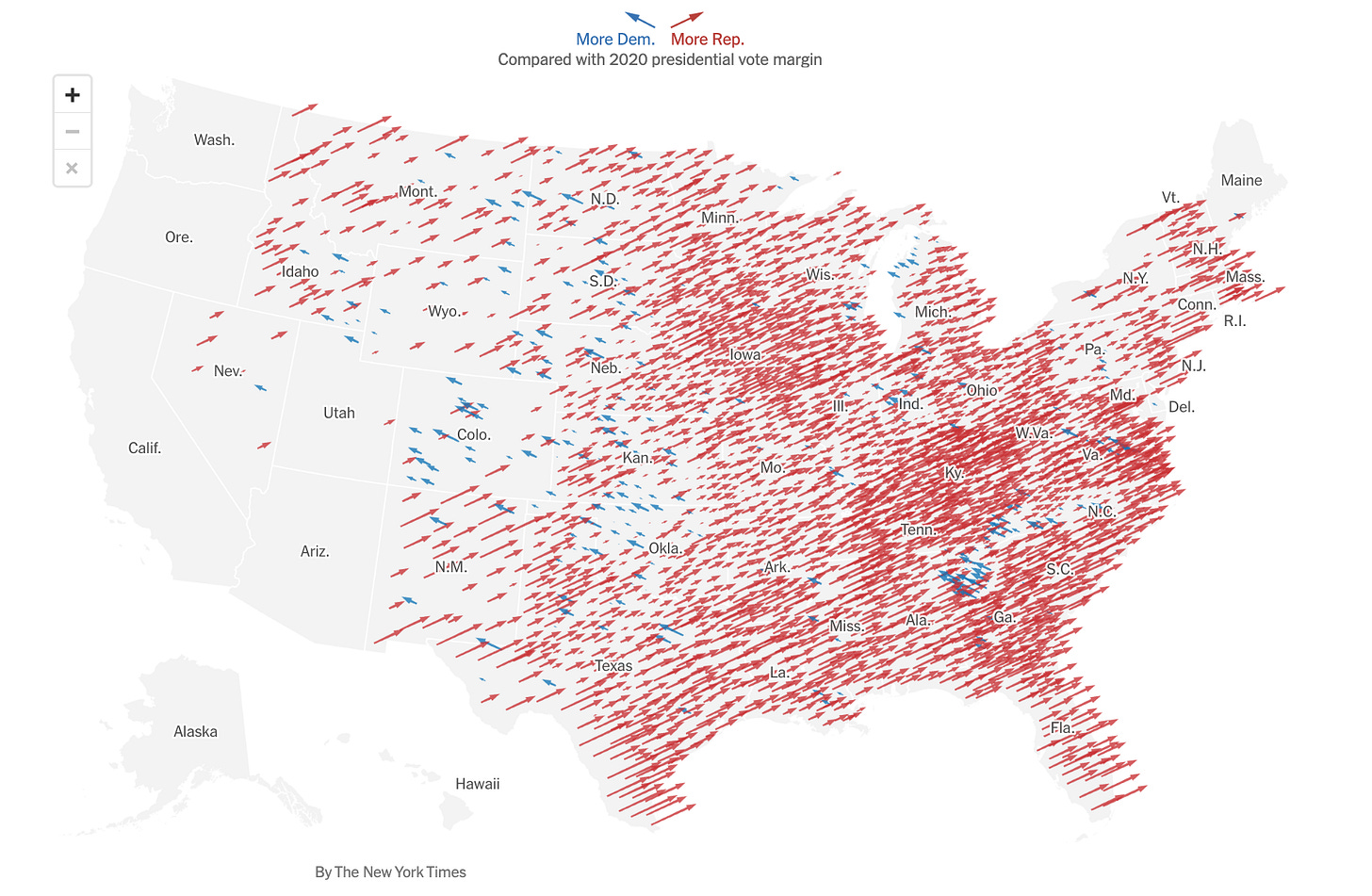The first of many post-election thoughts, and my path forward
This was a bad outcome for America and the world. But I think the only way to feel better about ourselves and about the world is to take the things we believe in and make them happen.
In my view, no Democrat would have beaten Trump. Harris was a perfectly fine candidate and she ran a solid campaign. It’s not like they lost because of a specific bad decision or tactical error. They lost because the public is broadly unhappy and they want change.
Why are they unhappy? The world feels worse than ever, social media is the unhappiness machine that shows all of us, 24/7, why our lives are inferior to everyone we see online and everything bad happening everywhere in the world, all at once, and we face more existential threats – nuclear, climate, bioweapons/ viruses, AI – than ever. All of that adds up to widespread fear and anxiety.
When people run for office, they promise to fix everything. That’s how campaigns work. But given the structural problems of our government, actually fixing things is near impossible. We have a political system that is completely polarized and all of the political incentives for candidates and elected officials is to stay true to the base and not piss off a series of powerful special interests because in a world of gerrymandering and 10-15% primary turnout, only the extremes matter. That then makes bipartisanship, consensus, compromise and results effectively impossible on most issues. Which means the executive in charge is deemed to have failed and the public picks someone else.

It is likely that we are in the middle of a period of one term Presidents, Governors and Mayors and constant shifts in power between parties because people are unhappy, they want someone to blame, and the system is too broken for anyone to change that.
The only way to fix the broken system is by changing the political inputs and getting many more people to vote. Turnout is high in presidential elections. But in primaries — especially for local and state offices where the most critical policy actually gets made — turnout is abysmal. When 10-15% of the electorate decides who wins office and what they do in office, we only get either total dysfunction (Washington, DC) or one sided state and local governments (Texas on the right, San Francisco on the left are good examples).
If we enabled people to vote securely on their phones, we could materially increase turnout. That changes the underlying political inputs which then changes the policy outputs (it’s exactly how we legalized Uber). If we can get to a point where it’s easier for the two parties to work together, we know there are commonsense, mainstream solutions to most problems.
And once government starts to get things done, perceptions start to change. People start to have more faith in their government. They’re less cynical. Less likely to keep throwing out the incumbent. More good people are likely to choose to run for office and work in government. We’re currently in a death spiral but the same network effect can work in the other direction too.
While I see a solution in mobile voting and a path forward for the country, this is absolutely not a silver lining to the results of the election. This was a bad outcome for America and the world. But I also think the only way to feel better about ourselves and about the world we live in now is to take the things we believe in and dedicate ourselves to making them happen. Mobile voting is how we get there.




A tiny Nordic country - Estonia, has been using extremely secure online voting (not mobile yet, tho) for 20 years. Very convenient. People love it.
Are others using online voting? How are they ensuring that the votes are not hacked? We have a very secure system now though very fragmented. That makes it hard to hack. I would be interested in hearing about other countries efforts. We also need to work on stopping voter suppression which is think is a big problem in the US.